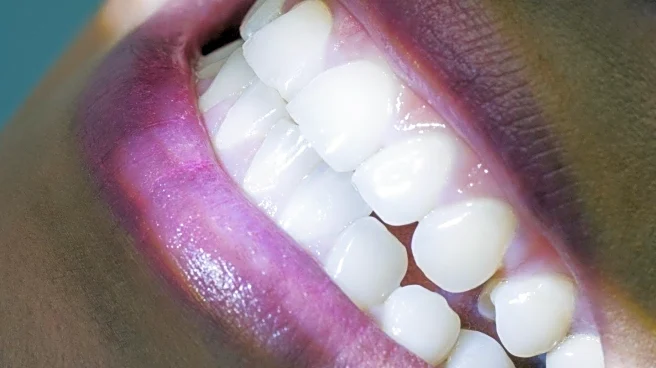What is the story about?
What's Happening?
Roche's oral selective oestrogen receptor degrader (SERD), giredestrant, has demonstrated improved progression-free survival in a second-line breast cancer trial. The evERA study results indicate efficacy in patients with HR-positive, HER2-negative advanced breast cancer, regardless of ESR1 mutation status. Roche plans to file for approval based on these findings, marking a potential advancement in breast cancer treatment options.
Why It's Important?
The success of giredestrant in the evERA trial offers hope for patients with advanced breast cancer, providing an effective oral treatment option. This development could shift the landscape of breast cancer therapy, moving away from injectable treatments and expanding options for patients. The trial's positive results may influence future research and regulatory decisions, potentially leading to broader access to innovative cancer therapies.
What's Next?
Roche intends to submit the evERA study data to health authorities, aiming to bring giredestrant to market as soon as possible. The company is also pursuing first-line and adjuvant indications for the drug, with additional trials expected to read out next year. The approval process and subsequent market introduction will be critical for Roche's strategy in oncology and could set a precedent for oral SERD therapies.
















